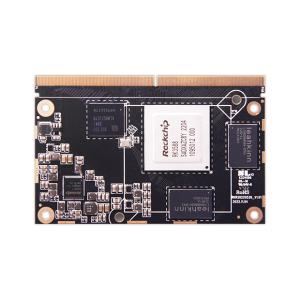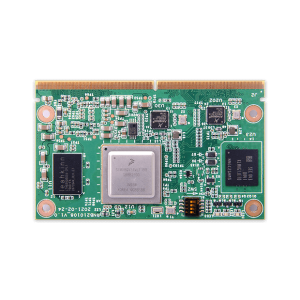Designing with Computer on Module: A Complete Guide for Developers
Designing with Computer on Module: A Complete Guide for Developers
Blog Article
Side processing has emerged as a innovative tendency in the computer business, permitting quicker information handling and paid off latency by getting computational energy nearer to wherever data is created. A key advancement pushing this transformation may be the increase of system on module arm which are small, successful, and functional computing models built to integrate seamlessly into tailored electronics systems.

The Role of Pc on Adventures in Edge Computing
Computer on Modules are becoming vital in edge processing because of the capability to improve electronics design while sustaining sturdy processing capabilities. Based on a current report by MarketsandMarkets, the international side computing market is predicted to grow from $40.84 thousand in 2021 to $132.11 thousand by 2026, with COMs enjoying a substantial role in this expansion.
These segments are especially impactful in industries requiring real-time information evaluation at the edge. For example, the transport industry utilizes COMs in autonomous cars for real-time decision-making, while clever towns release them to handle techniques like traffic movement and power distribution.
Compact and Flexible Style
One of many standout traits of Pc on Adventures is their compact and modular design. This permits developers to combine high-performance research energy in to edge devices without the need for extensive hardware redesign. A study by IoT Analytics found that 68% of businesses implementing IoT solutions contemplate modular hardware like COMs important for rapid arrangement and scalability.
COMs also support customizable designs, making them ideal for a wide selection of applications, from commercial automation to healthcare. Their ability to adapt to unique demands is really a operating power behind their usage in side research systems.
Power Performance and Performance
Edge processing devices usually operate in environments with confined energy resources. COMs handle that concern by providing improved power effectiveness without reducing on computational strength. A study by Allied Market Research highlighted that energy-efficient edge computing solutions are anticipated to take control the market through 2030, positioning COMs as a crucial aspect for reaching that goal.
Also, with breakthroughs in processors and integrated artwork, COMs now supply the performance necessary for AI-driven purposes at the edge. This not just increases real-time features but in addition decreases dependence on centralized cloud systems.
Why the Potential Goes to COMs
With worldwide knowledge generation projected to reach 175 zettabytes by 2025, side research is defined to are more important than ever. Computer on Adventures offer an adaptable, energy-efficient, and scalable solution for handling that influx of data. Their relevance across varied areas like healthcare, production, and telecommunications just underscores their essential position in shaping the ongoing future of edge computing.
COMs are no longer just a technological tendency; they are the backbone of next-generation side methods driving creativity and efficiency over the globe. As the need for side processing keeps growing, therefore will the importance and impact of COMs in this quickly evolving landscape. Therefore, it's safe to express that Pc on Adventures are here to remain and can keep on surrounding the ongoing future of side computing.

Conclusion
Edge processing is transforming just how we process and utilize knowledge, with Pc on Modules at the lead of this revolution. Their small design, usefulness, power efficiency, and efficiency cause them to become a perfect alternative for processing real-time data at the edge. As industries significantly rely on edge research for his or her operations, COMs may play an essential role in driving invention and efficiency in these systems. Report this page